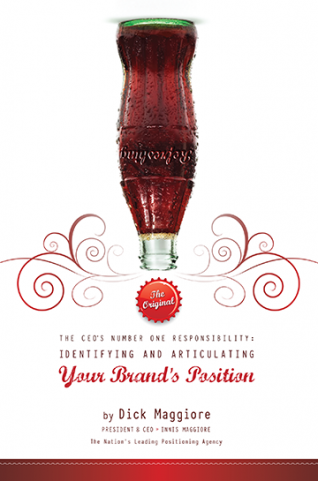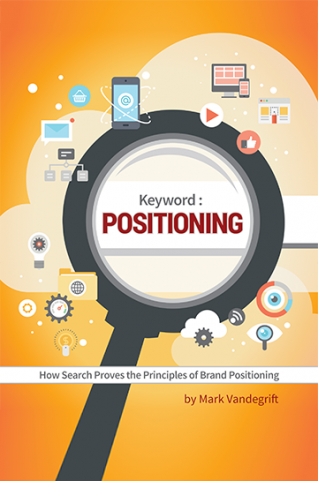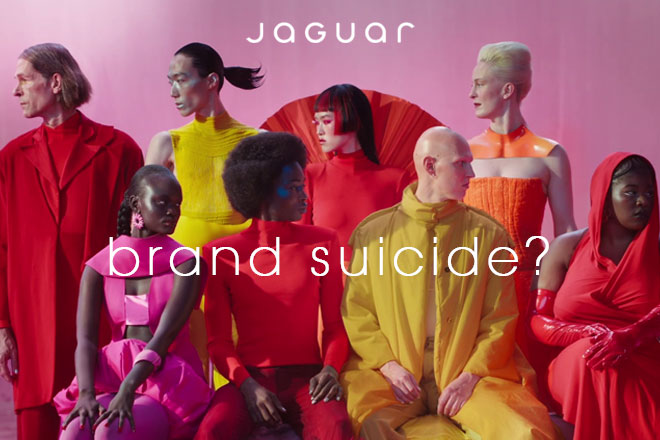I’ve been asked about a couple dozen times now, “What did you think of that Jaguar ad?” My response is always, “Well, it’s interesting…” and I stop there because most people have already formed their opinions, and it’s typically, “It’s awful.” Elon Musk may have asked the best question on X, “Do you sell cars?” Our own team has considered, did Jaguar commit brand suicide? Maybe. Let’s review a few perspectives.
The Positioning Perspective
In an age where every commercial is subjective in its entertainment value, we as positionists view this through a slightly different lens. While entertainment can be the emotional trigger for us to pay attention, positioning strategy requires us to build an idea into the mind — the gray matter where brands win, or lose.
So, our question is: Did the ad work to place a meaningful idea into the mind about the brand? When someone references the car category in their brain to shop for vehicles, what did this ad do to increase consideration? The only way a brand gets on a category ladder is with a unique idea. It’s because we store ideas in our minds first, which are then attached to brands. We only store brands that at one point in our lives had ideas behind them. Reliable car = Toyota. The ultimate driving machine = BMW. Affordable luxury car = Lexus. Luxury car = Cadillac. Jaguar = British sports car. The ad did nothing to put that idea in any of our minds. Instead, most of us walked away with the idea of “that was weird” and diminished any of us old enough to remember that Jaguar was once considered a cool British sports car. Instead, the idea of “weird” is not going to cause any of us to buy a Jaguar.
If there was a goal for the ad, may we suggest that we go to the source of the ad: Managing director Rawdon Glover was interviewed by the Financial Times and commented, “If we play in the same way that everybody else does, we’ll just get drowned out. So, we shouldn’t turn up like an auto brand.”
As we typically do, we’ll apply positioning principles to this statement. One of the first positioning rules is that the difference must be relevant to the customer and differentiating from the competition. However, if it is only different for difference’s sake, then it is a meaningless difference. There was nothing about the TV spot that was relevant to the customer. It showed nothing about the car, nothing about the brand, and nothing about the company. The new logo (a whole separate topic) appeared at the end of the ad. What it did show was some type of perverse take on something, but most people were just left confused. Responses were mostly between “Wait, what?” to “What in the…???”
The Any-PR-is-Good-PR Perspective
Before we discount this teaser ad as another “go woke, go broke” failure, let’s look at the search volume (figure 1) of “Jaguar.” Maybe the TV spot accomplished its purpose after all?

Figure 1 – Source: Google Trends
For the brief period when the ad was teased and subsequently released on TV, “Jaguar” had a significant spike in search volume. So, was this a PR stunt? We must ask the timeless question, “is all PR good PR?” Obviously, interest in the ad increased, but how will that impact sales? If we try to connect search volume to the subsequent unveiling of its concept car (yes, concept ONLY, it will never be sold) — Jaguar Type 00 — in December 2024, search volume had already decreased, and the reveal seems to have had little impact on subsequent search volume. Indeed, it appears that the ad was the trigger, not interest in the actual concept car. We’re going to surmise that indeed, “bad PR is bad” in this case.
The Jury is Still Out on Brand Suicide
According to a December 7, 2024 BBC article, “’Jaguar has no desire to be loved by everybody,’ said Gerry McGovern as he strode across the stage on a slightly chilly evening in Miami last week. It was a bold statement from Jaguar Land Rover's creative director, but it summed up the aura around the relaunch of one of the UK's most famous brands.”
The same article indicated that Jaguar’s sales had increased 7% in 2024 after five years of declining sales, but that was prior to the ad and the concept car reveal. Only time will tell, but the critics have lined up en masse indicating that this has done nothing more than drive the dagger deeper into the Jaguar brand.
Cool. Not Hip.
Our assessment can’t wait until 2026 when Jaguar finally hits the road with its new styling as teased with the concept car Type 00. We believe “hip” — if that was the idea behind the teaser ad — is not the position for a British sports car. “Cool” is what we would have expected as we associate Jaguar with British spies, fast cars, and excitement.
Trying to reposition Jaguar with one woke ad that has no connection to a car of any brand isn’t the recipe for success. The PR stunt was a flash in the pan, and it will have no lasting impact. In fact, the next Jaguar ad — if the brand decides to launch one — will undoubtedly be viewed with much more skepticism and be given little chance for success. Perhaps Jaguar’s marketing team will surprise us, but we aren’t holding our collective breath. Did Jaguar commit brand suicide? The answer is yes, but it happened a long time ago. The ad was simply the funeral.
Innis Maggiore is the nation’s leading positioning ad agency. If you’re in need of a positioning ad agency to drive your brand on the road to success, contact us today.



